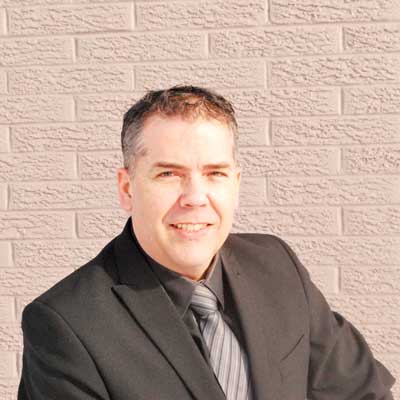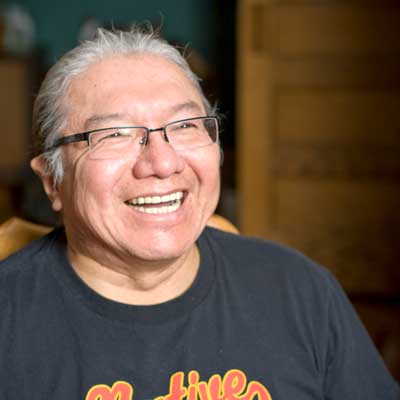EDITOR’S NOTE: From now until June 6, the day before the Ontario election, this newspaper will pose questions––meaningful to the people of Manitoulin Island––to the six candidates in the riding of Algoma-Manitoulin. Their responses will follow each and every week on Page 3 of this newspaper.
We are in the midst of an epidemic. Opioid deaths continue to rise in Ontario, with a 52 percent increase in opioid deaths from January to October 2017 (1,053) over the same period in 2016 (694,) and a 72 percent increase in opioid-related emergency department visits with 7,658 in 2017 versus 4,453 in 2016.
Given the right circumstances, anyone can become an addict. It could be your 14-year-old neighbour or the grandmother playing bingo. Addiction, whether to prescription medications (like hydromorphone or dilaudid) or street drugs (like cocaine, heroin or synthetic fentanyl) is treatable and can be managed. However, while research has shown that combining addiction treatment medicines (such as methadone and suboxone) with other therapies and community supports offers the best chance of success, rarely are addicts offered the full range of assistance options.
If your party forms the government after the upcoming election, what measures will it put in place to reduce the risk (or prevent) drug dependencies and to assist addicts with recovery and reintegration into society?
Tommy Lee, Northern Ontario Party

Thank you for including our party, and myself, in this very important and informative process. I’m very excited to represent the Northern Ontario Party for the very first time in the Algoma-Manitoulin constituency, and across the North as the party president. As a regional party, only representing Northern Ontario, we realize that we will not form the government, and the majority of our policies are geared toward Northern Ontario issues. Saying that, we look forward to working with the party in power for the best interest of our constituents.
The opioid crisis and drug addiction in general is one that effects Northern Ontario and our riding in a big way. Mental health spending is roughly at the same level as it was in the late 1970s while spending in almost all other areas has increased dramatically over the same period. We need to ask the three Toronto focused parties why that is? They have all been in power since that time so this is not just on one of them, but all of them. The Northern Ontario Party believes that the Ontario government should be run with a balanced budget, however this is one area where spending needs to increase significantly. We need more addictions counsellors, and mental health workers, and we need them in our smaller communities, not just in our urban centers. We need to have the tough conversations with physicians who too freely prescribe medication such as oxycodone when non-opioid alternatives exist.
Finally, it should also be known that if I were elected as MPP for this riding, I am committed to polling the constituents prior to every vote in Queen’s Park. So when a bill is presented by any party in the Legislative Assembly it would ultimately be up to the constituents of this riding whether or not I would support that legislation. The constituents would control the direction of the party concerning addictions as well as every other issue on the table. The other candidates belong to parties that employ a party whip, therefore they vote how they are told to vote by their leader, and have to represent their party over and above the people of their riding. That is why Northern Ontario under those parties will never be properly represented in Queen’s Park. Thank you once again for this opportunity.
Kalena Mallon- Ferguson, Libertarian Party

Thank you for the question. We at the Ontario Libertarian Party address healthcare by allowing choice and would put an end to healthcare rationing. By opening up the market we will see government and non-government open to the needs of Ontarians. Libertarians believe that addictions and drugs are just that—a medical concern—not a crime; treatment, not jail.
The opioid issue really started by doctors who were not allowed to treat their patients. Government overregulates them and patients are typically forced to look for pain management elsewhere. Most opioid deaths are because of mixing medications and what is in the mix. This is a concern. Doctors trained on medications know the limits and what type of medication works best.
We need doctors to decide, not the government. There are many cases in Ontario where patients are on heavily-monitored doses of opioids and remain safe because the doctor and patent have a plan. If that patient is cut off pain medication they look elsewhere, which feeds the underground market for pain medication and puts them at risk.
At present, Ontario taxpayers pay for a generic health insurance plan. This plan serves many people’s needs very well, but some people are not well served at all for many reasons. In order to address this, new insurance options will be allowed. For instance:
- An “Athletes Plan” could be offered – including basic medical, and more service in physiotherapy and less cancer treatment.
- An “Autism Plan” could be offered – including basic medical, and more autism treatments.
- A “Healthy Living Plan” could be offered – including basic medical, dental treatment and eyeglasses, and less treatment for chronic disease such as diabetes.
- Any kind of plan can be offered if there is a market for a plan.
- The current OHIP plan will continue to be offered.
- A drug recovery plan could be done very easy with supports to the addict.
Libertarians encourage personal responsibility, however right now through government monopolies, choice is limited as to what government says is available. By ending government monopolies, Ontarians can and will have many more choices for addiction and overall healthcare.
Charles Fox, Liberal Party

Our Liberal government has been very clear that this is a public health crisis that needs immediate and urgent action. We have been listening to people on the front lines who have told us that more support is needed to combat this crisis and we have taken action. We have put in place the most comprehensive opioid strategy in the country, investing over $250 billion to address addiction and support people in getting the help they need.
We are committed to tackling this crisis on all sides by:
- Providing an immediate $222 million boost over three years to enhance Ontario’s Strategy to Prevent Opioid Addiction and Overdose
- Adding more front-line harm-reduction workers across the province
- Expanding the supply of life-saving Naloxone free of charge
- Providing $70 million to expand Rapid Access Addiction Medicine Clinics across Ontario
- Providing more access to harm reduction services like needle exchange programs and supervised injection sites
- Increasing investments in mental health supports
The Progressive Conservatives are perpetuating the stigma of mental health by saying that they are “dead against” supervised injection sites which play a critical role in fighting the opioid crisis.
At a personal level, I know that there are children—many of whom are Indigenous—that are suffering after having been born with opioid addictions. It is critical to me that we develop a protocol to help these children both at home and at school.
While we know that these new measures are important steps that will help save lives, we are committed to continuing to take strong action to combat this crisis head on.
Michael Mantha, New Democratic Party

The opioid overdose emergency has now touched every community in Ontario. Deaths from drugs like fentanyl have cast a shadow on thousands of families. There’s no question that the crisis has exacted an especially heavy toll on marginalized and vulnerable communities. For people living in poverty, who don’t have stable housing, or who are coping with the legacy of colonialism and the pain of systemic racism, there’s a much higher risk of dying.
This emergency is unique, unlike any Ontario has seen before. To effectively address it we must consider utilizing new and often unconventional methods. It means addressing the problem with a sense of real urgency. Every day of inaction costs lives.
When we form government, we will declare a public health emergency, recognizing the scope and serious nature of the crisis, and we must mobilize resources across the province.
Today we have to cope with 15 years of Liberal cuts and underfunding in healthcare, mental health and addiction treatment and prevention. It is unfortunate to see that Doug Ford and the Conservatives are looking at making an additional $6 billion in cuts and are opposed to safe injection sites which is a key measure for recovery and prevention.
Andrea Horwath and the NDP will focus most urgently on harm reduction, to save lives now. We will expand the distribution of Naloxone and other anti-overdose medications, and support the establishment and operation of supervised injection sites and overdose prevention sites wherever they are needed. We will listen to front-line harm reduction workers and people with first-hand experience because they are the experts—and the heroes who are saving lives every day.
Our investment in 30,000 new supportive housing units will help people who are ready to begin recovering; helping them rebuild their lives in a safe, stable home with the services and supports they need. We will work with police services across the province, ensuring they have the resources to pursue traffickers and high-level dealers, while recognizing addiction and treating addicts with dignity.
Finally, we will work with the Opioid Emergency Task Force to provide evidence-based strategies to save lives and fight addiction.
Today, 11 ministries deliver a patchwork of programs and services for mental health and addictions. The result is predictable and damaging: a confusing, hard-to-navigate system with far too many cracks for people to fall into. An NDP government will establish a new, dedicated Ministry of Mental Health and Addictions so our efforts can be consolidated and Ontarians can finally have effective change for the better.
Justin Tilson, Green Party

This is an important question for our governments to respond to. We need informed, rational, compassionate and open minds if we are going to create solutions that truly work. I am choosing to expand the scope of my answer beyond opioids because such a narrow focus on this class of drugs fails to understand and respond the bigger picture.
While some addictive proclivities are rooted in genetics, the vast majority of people end up addicted to drugs, alcohol, smoking, work, sex, shopping or eating because they were traumatized, often early in life. If we as a society respond to this trauma as a criminal justice issue or a moral failing, we end up inflicting even more trauma on an already traumatized individual. The worst thing we can do is to respond punitively.
My position on this subject has been highly influence by Dr. Gabor Mate. Dr Mate is highly respected Canadian physician who spent much of his professional life treating addictions. He writes and speaks extensively on this subject. As a Green, I would enlist his help to guide our government to form policy and implementation.
There are highly successful models internationally that are worth considering as an option in Ontario. The largest that I am aware of is San Patrignano in Italy. It is an enormous community that exists to support those on the personal and spiritual journey of healing trauma and resulting addictions. There is much we can learn and borrow from them.
I have (for lack of a better term) a liberal position on drugs. I am in favour legalizing all drugs. Criminalizing drugs does little to stop their availability, fuels criminal activity, requires substantial policing and forces peoples’ habits into the shadows where they are more difficult to reach and support. Resources currently spent on policing and law enforcement would be better used on compassionate care and support. Being able to legally access drugs eliminates the dangers of many street drugs and would provide additional revenue to our government which can be directed towards care and treatment. This approach also stems the flow of funds to drug dealers and organized crime.
Finally, education on the subject of drugs and addiction needs to grow up. From early on in school, kids are taught, “drugs are bad.” If you do drugs bad things will happen. This is a superficial and naïve point of view that is often shared by teachers and law enforcement. We need to be honest. Young folks are going to do drugs if they want to. Let’s not judge them but create safe spaces for meaningful dialogue. Let’s support them to make more informed choices. Youth would be better off hearing from a variety of perspectives, particularly from those who have first-hand experience.
Jib Turner, Progressive Conservative Party

The Ontario PCs have been very clear, Ontario is in the midst of an opioid crisis.
In nine years, fentanyl overdose deaths in Ontario have soared by 548 percent. Opioid overdoses and abuse can tear apart families and communities, and our vulnerable youth are being put at risk. This is especially true in Northern Ontario.
We need to help these people.
If you know someone who has ever had an addiction, would you want them to go in a little area and do more drugs? Safe injection sites like the Liberals and NDP are proposing—PCs do not support them. They just keep giving in and feeding them.
To help these people, we need to tackle this problem head on and focus on mental health and addictions.
We are going to invest $1.9 billion into our mental health system. The Liberals haven’t done enough to deal with this crisis. A PC government will take this seriously and help people struggling with mental health and addiction.
An Ontario PC government will do all we can to fight Ontario’s opioid drug crisis and get people struggling with addiction the help they need.
Let’s fix this mess.
Help is on the way!




